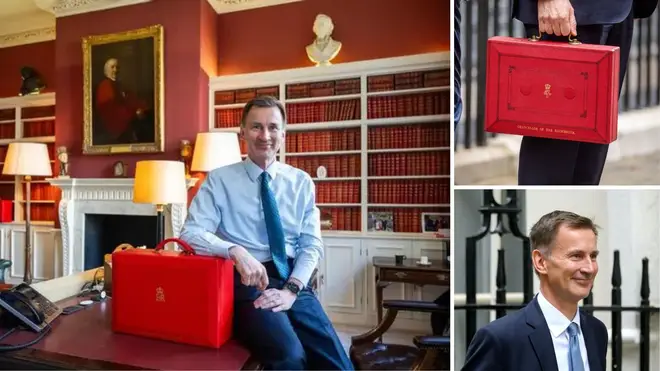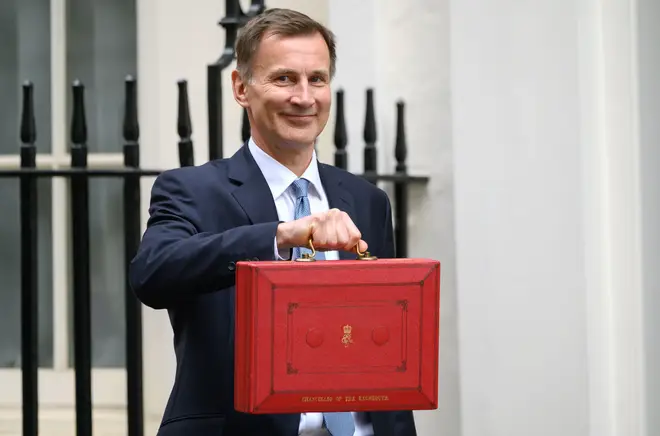
Nick Abbot 10pm - 1am
6 March 2024, 08:35 | Updated: 6 March 2024, 08:38

Chancellor Jeremy Hunt will set out the 2024 spring Budget on Wednesday, March 6, in what's expected to be a hugely significant moment for the country.
Paving the way for a spring general election, this could be the final Budget overseen by the Conservatives - and a last ditch bid to persuade voters.
Potential cuts linked to national insurance have been floated by the Chancellor, with rumours of a rise in income tax thresholds and 99% mortgages music to the ears of first time buyers.
Ahead of today's announcements by Jeremy Hunt, these are the key points worth knowing.
The budget will reveal the government’s spending plans for the upcoming year. Tax cuts are at the top of the agenda as millions of people struggle with the rising cost of living.
The Chancellor will be looking at ways to cut taxes with speculation he could scrap the non-dom tax status and raise duty on business class flights among measures put forward.
The government will also be looking at finding ‘efficiencies’ in public spending.
Read more: Chancellor considers 'further cuts to public spending' as he aims boost Budget tax giveaway
After Prime Minister’s questions at midday the Chancellor will stand up to deliver the budget. He will set out plans for taxes, and commitments for public services like health, schools and the police.
Alongside the budget, the Treasury publishes its own report setting out full details of the spending plans. The independent Office for Budget Responsibility (OBR) also assesses the plans, with their findings released shortly afterwards.
The Labour leader will then have a change to respond to the Chancellor’s statement.
The budget speech normally starts at about 12.30pm and lasts around an hour.

The 2024 Spring Budget could include:
• Income tax cuts - tax is expected to be frozen - but there are questions over how the government will afford this. Bands have been at £12,570 and £50,270 since April 2021 but could potentially rise to £15,000 and £60,000 respectively.
• National Insurance - An NI cut took place in January and the government could cut this again - reports suggest a 2p reduction could be on the cards.
• Public sector spending is expected to fall in percentage terms from 1% to 0.75%.
• Air Passenger Duty - business class flights could get more expensive. One proposal could increase air passenger duty for those travelling in business class - a move that could potentially raise hundreds of millions of pounds.
• Scrapping Non-Dom Tax Status - So-called Non-doms only pay tax on money earned in the UK. There were around 68,000 individuals claiming non-dom status in the UK in the tax year ending 2022.
• Oil and Gas Windfall Tax - Government considers extending this for another year. In it's first year, the 25% energy tax earned the government £2.6 billion.
• Vaping - possible separate new tax on vapes, with the levy expected to raise around £500m.
• Fuel Duty - It's been frozen since 2011, however, a 5p increase is rumoured to be on the cards.
• Inheritance Tax: - Threshold changes could come in to reflect rising house prices. A change could ultimately benefit those with capital in excess of £1 million.
• Childcare - Expansion of free places and review of child benefit rules. It follows the news that from September 2024, 15 hours of free childcare will be extended to all children from the age of nine months.
• Holiday Lets - New rules to stop local people being priced out by second home owners. The chancellor could introduce new tax rules, ultimately restricting holiday lets while raising an expected £300 million for the government.
• 99% Mortgages - The proposal aims to aid first-time buyers in getting their foot on the ladder, despite many branding it a dangerous move.